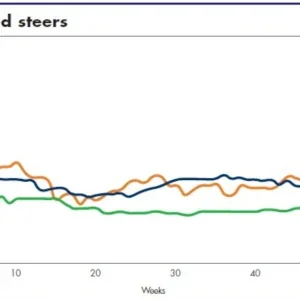Meat processors Iowa Beef Packers Inc (IBP) have settled a lawsuit brought against the company by the Department of Justice on behalf of the Environmental Protection Agency (EPA). The settlement will cost IBP more than $14 million in penalties and renovations to their facilities.
The EPA filed the suit in January 2000, alleging environmental violations at IBP’s slaughter and tannery plants in Dakota City, Nebraska.
The EPA said the company had been emitting excessive amounts of hydrogen sulfide into the area for a decade, and spilling ammonia into the Missouri River. The agency said these actions were violations of the Clean Water Act, Clean Air Act, and various hazardous materials laws.
An IBP statement said the company will pay $2.25 million to the EPA in fines and $1.85 million to the state of Nebraska. IBP will be forced to pay $10 million to reduce wastewater emissions at their Dakota City facility. The settlement also resolved another violation in Illinois, which will cost IBP $200,000 in fines.
As a result of the settlement, the EPA have dropped their lawsuit against IBP, who continue to deny the allegations. ‘While we still don’t agree with the nature and extent of the claims made in the federal government’s lawsuit, we’re glad that we were able to come to an agreement that allows us to put this matter behind us’, said IBP’s William Tolle.
According to the EPA, IBP’s open waste lagoons emitted as much as 1,800lb per day of hydrogen sulfide, something the community has complained about for years. The EPA said that IBM had modified their facilities without a permit or using the best available pollution-reducing technologies. The EPA also claimed IBP violated hazardous material laws by failing to report how much hydrogen sulfide they were emitting. Another citation said IBP were not properly disposing of barium and lead stun gun chemicals used to kill livestock.
Finally, the EPA’s suit alleged the company violated CWA by releasing excessive amounts of ammonia into the Missouri. IBP statements said the violations were more a result of miscommunication by the Nebraska Department of Environmental Quality and ‘bureaucratic roadblocks’ than intentional wrong-doing. ‘This lawsuit benefits no one’, IBP said. ‘It only further delays the environmental improvements we have been trying to make at Dakota City since 1997.’






